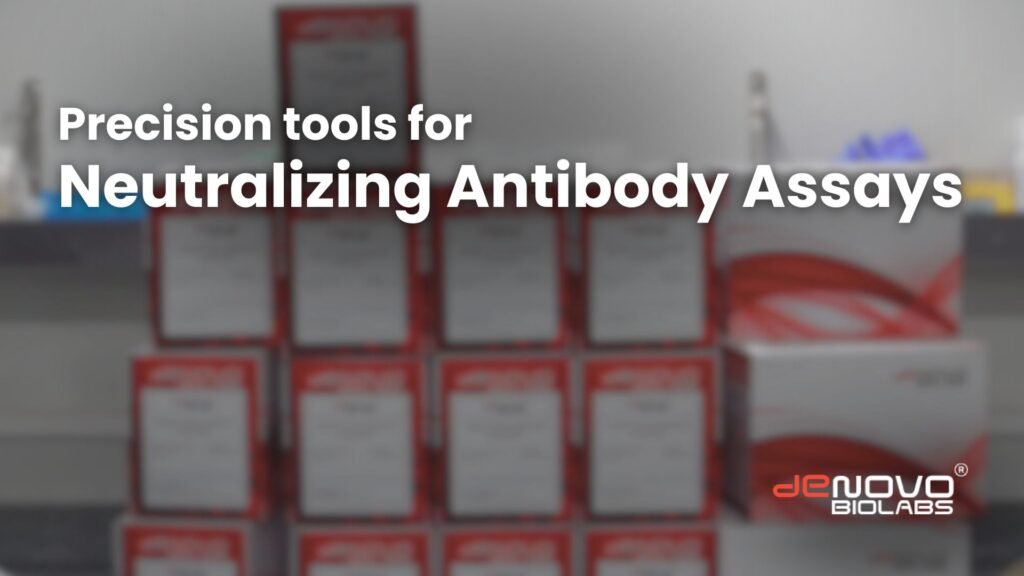
Why ADA Detection?
Biologic therapies such as etanercept (a TNF-α inhibitor widely prescribed for autoimmune diseases like rheumatoid arthritis, ankylosing spondylitis, and psoriasis) have transformed patient outcomes. However, one major challenge limits their long-term efficacy: the development of anti-drug antibodies (ADAs).
Studies show that up to 30–40% of patients receiving biologics may develop ADAs over time, which can neutralize therapeutic action, alter pharmacokinetics, and increase the risk of adverse reactions (Frontiers in Immunology).
This makes reliable ADA testing, not just binding assays, but neutralizing antibody detection essential for both clinical monitoring and biosimilar development.
Why neutralizing antibodies to Etanercept are critical?
- Beyond binding ADAs:
While binding ADA assays (like ELISAs) can identify the presence of antibodies against etanercept, they cannot determine whether those antibodies actually block etanercept’s function. - Neutralizing antibodies (NAbs):
These specifically interfere with etanercept’s ability to bind TNF-α, leading to loss of efficacy. Detecting them provides direct insights into clinical outcomes. - Impact on drug development:
For biosimilar developers, demonstrating comparability in immunogenicity—particularly neutralizing responses—is a regulatory requirement (FDA Guidance).
For Cell-Based Assays
Neutralizing activity is best assessed through cell-based functional assays.
- Physiological relevance:
Unlike binding assays, cell-based assays replicate the biological environment where etanercept interacts with TNF-α. - Regulatory acceptance:
Both EMA and FDA recommend cell-based assays as the preferred method for NAb detection (EMA Guidelines). - Sensitivity & specificity:
These assays differentiate between binding-only antibodies and those that truly impair drug activity.
Denovo’s Neutralizing Anti-Etanercept Antibody
At Denovo Biolabs, we offer high-quality neutralizing anti-etanercept antibodies designed for both ADA assays and cell-based functional assays.
Key features include:
- High specificity for etanercept without cross-reactivity to endogenous TNF inhibitors.
- Validated for ADA workflows, ELISA formats, and neutralization cell-based assays.
- Consistency in performance, ensuring reproducibility across multiple assay runs.
- Flexible quantities to support both R&D-scale experiments and large CRO/manufacturer pipelines.
By integrating these reagents into assay development, researchers and diagnostic developers can confidently measure neutralizing responses—helping advance biosimilars and improve patient monitoring.
Market & Research Relevance
- The global ADA testing market is projected to grow substantially, driven by the rise of biologics and biosimilars (expected to exceed $90 billion by 2030 in the TNF inhibitor market alone, according to Market Research Future).
- Etanercept remains one of the top-selling biologics worldwide, underscoring the importance of robust ADA and NAb testing platforms.
Conclusion
Neutralizing antibodies against etanercept represent a critical checkpoint in therapeutic monitoring and biosimilar evaluation. With reliable reagents and cell-based assay strategies, developers can not only meet regulatory standards but also safeguard patient outcomes.
At deNOVO Biolabs, we provide neutralizing anti-etanercept antibodies optimized for ADA assays and functional cell-based assays. Whether you’re a CRO, diagnostic developer, or biopharma innovator, our validated solutions ensure confidence in your results.
Get in touch with our team to learn how our antibodies can accelerate your ADA testing workflows.
